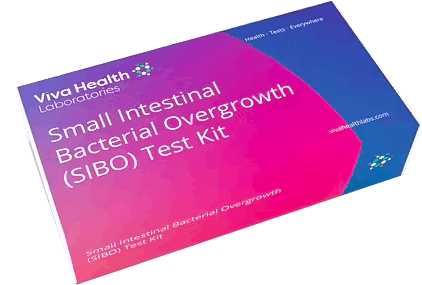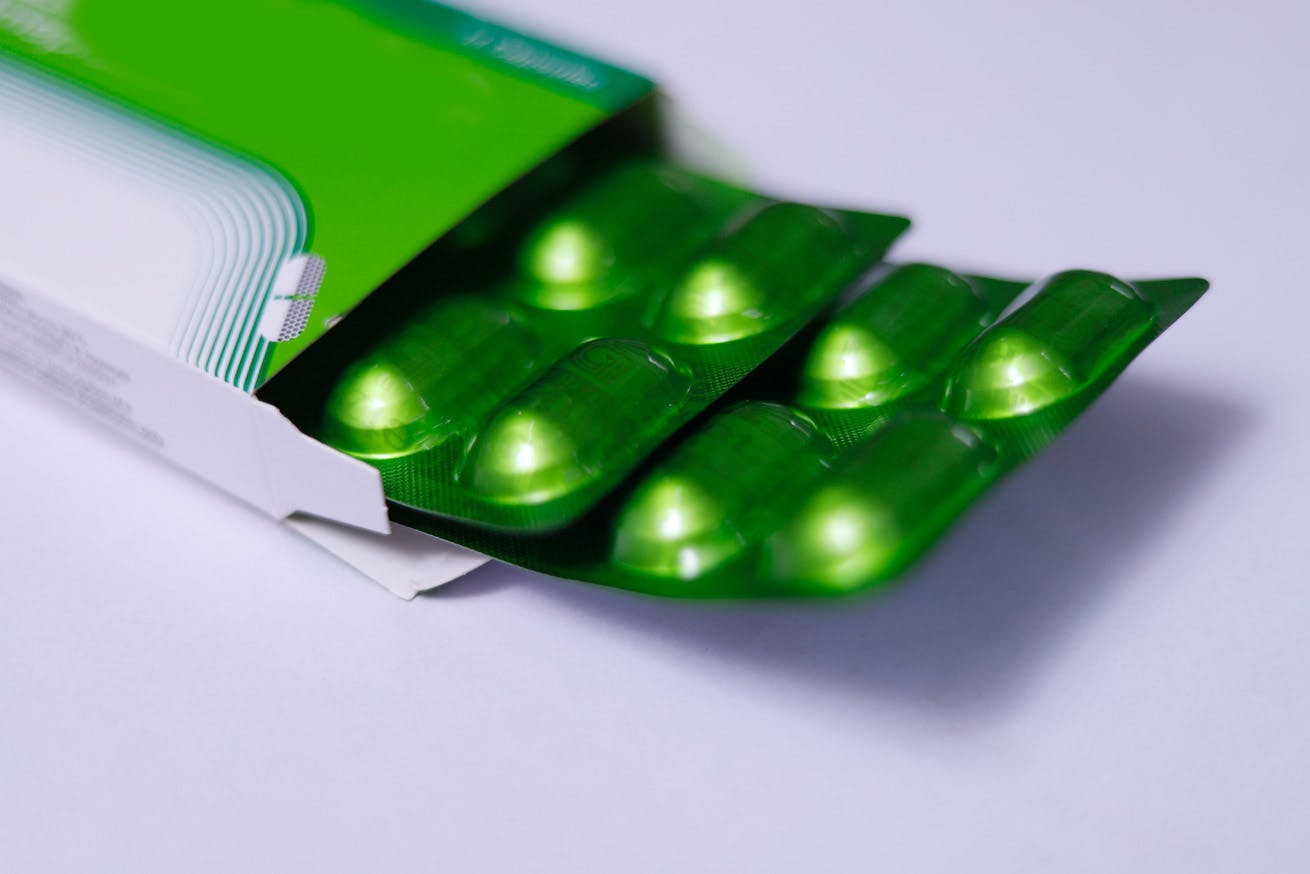Reflux, the gut biome and SIBO
In this post our founder Nick Boyle takes a detailed look at the findings from the pioneering SIBO study RefluxUK has led on - discussing key takeaways and how the study can provide a framework for how we approach future study of Small Intestinal Bacterial Overgrowth.


Written by Mr Nick Boyle
Firstly, just a note that this is indeed a longer article than usual! However, we think the subject important and worthy of lengthy discussion.
Since gastro-oesophageal disease (GERD) was first described, the focus of scientists and clinicians has always been on acid. Indeed, although in the first half of the twentieth century some surgeons such as Allison in England and Nissen in Istanbul/Basel concentrated on anatomical defects and especially the repair of hiatus hernias, medicine’s concepts of how to diagnose and treat GERD and its symptoms and complications have mostly revolved around acid to the exclusion of other explanations1. Indeed, the colloquial term 'Acid Reflux' has come to be used synonymously to describe GERD. But we’ve always known that treatments aimed at reducing acid or its effects don’t always solve reflux symptoms and alternative explanations have been elusive. So, as we now enter an era in which our evolving understanding of the gut biome and its impact on health and disease is developing rapidly, could our gut health provide an alternative explanation in some patients?
As long ago as 1855 the pioneering Viennese physician Rokitansky described the role of acid in reflux and the oesophageal inflammation it can cause (oesophagitis). As our ability to test acid in the oesophagus developed in the 1960s and 70s, its measurement came to define the condition. The development and success of the powerful H2-blockers and Proton Pump Inhibitors (PPIs) drugs in the 1970’s and 80’s which effectively stop normal hydrochloric acid production in the stomach re-emphasised in everyone’s minds that it is acid that is the cause of GERD. Today, over $10billion per year is spent worldwide on PPIs alone.
No-one doubts that failure of the lower oesophageal valve (LOS), usually in the presence of a hiatus hernia, is the frequent cause of GERD. When this occurs substances from the stomach are able to 'reflux' into the oesophagus and sometimes into the throat, mouth and lungs. Acid is an inevitable frequent component of this 'refluxate' which can be very irritating and damaging to soft tissues.
However, while PPIs and anti-reflux surgery can be very effective at treating many patients with GERD the simple truth is that this is not always the case. Too many people are treated with PPIs without good effect. The question is therefore if acid is responsible for causing reflux symptoms why don’t PPIs always work? Why for instance do they help only 20-30% at most of patients with Laryngopharyngeal (LPR) symptoms? Why are they equally ineffective in patients with respiratory symptoms. What about those with no hiatus hernia and a seemingly normal LOS or who suddenly develop terrible symptoms but in who these then resolve inexplicably often only to return at a future date? Or patients with achlorhydria, a condition in which the stomach produces no acid but who can nonetheless experience 'reflux' symptoms. And what about the patients who undergo anti-reflux surgery in which a super-competent LOS is created but whose symptoms still don’t resolve?
Over the years theories that maybe other substances in the refluxate beyond acid might be responsible have been developed. Pepsin and bile have been implicated, but it’s difficult to measure these and in any case many of the same questions arise. And because specific causes of symptoms have been elusive, other diagnoses such as burning mouth syndrome and hypersensitivity have developed for which anti-depressant drugs are increasingly prescribed. Meanwhile many people continue to experience often debilitating symptoms without successful treatment.
In recent years interest in the gut microbiome has accelerated. Evidence has developed suggesting that imbalances in the diversity of micro-organisms in the gut or indeed specific bacteria may be implicated in numerous not only gastro-intestinal conditions but more general systemic diseases as diverse as diabetes, depression and Alzheimer’s2. The focus of interest has mostly been on micro-organisms in the colon, that is the large bowel at the end of the GI tract that naturally is the home to billions of bacteria and other organisms. Research has become possible as the science allowing testing for bacterial DNA has become increasingly accessible. Whereas just a few years ago 16sRNA and Shotgun Metagenomic sequencing were expensive and confined to specialist research institutes, they have become universally available. The general public can now purchase kits online to test their faeces and numerous services now offer these tests and comprehensive analyses of the results. But, while these tests can look in detail at 'imbalances' of the gut biome the reality is that we still don’t really understand how to interpret the results in terms of clinical practice and treating disease. Some bacteria in isolation or combination may well be implicated in disease but in 2025 there’s little evidence that interventions beyond sensible dietary advice is useful.
However, Small Intestinal Bacterial Overgrowth (SIBO) is different. SIBO is a type of 'dysbiosis' in which abnormal micro-organisms colonise the gut between the stomach and colon3. It is considered to reflect poor 'gut health' and has been implicated in numerous illnesses. Importantly it can be diagnosed with a simple home breath test and there’s good scientific evidence that when positive about 70% will resolve/improve with treatment.
Over the years at RefluxUK we’ve become more and more convinced that the gut biome plays a role in reflux and in particular that SIBO seems to be a big problem. In 2022 we published a study with some colleagues in which we reported that over 60% of our patients complaining of reflux symptoms tested positive on breath testing for SIBO or its cousin Intestinal Methagenic Overgrowth (IMO)4. Other studies suggest that SIBO and functional dyspepsia (FD) often co-exist5. FD is a condition in which patients experience a constellation of symptoms attributed to the oesophagus and stomach and often identical to true GERD but for which no cause is found. What’s more, there is evidence that when treated with the same anti-biotics used to treat SIBO, FD symptoms can improve6. This raises intriguing questions. Could the cause of FD in fact be SIBO or IMO? Could these disorders of the gut microbiome be causing some of these patients’ symptoms and could treating the SIBO help resolve reflux symptoms in patients thought to have GERD?
We’ve now published a study in which we report that it can7. In our patient group all reported typical reflux and/or LPR type symptoms. All had been treated with PPIs with either no or sub-optimal response. 25% had hiatus hernias and some even tested positive for GERD on pH monitoring and were therefore being considered for surgery. But they all tested positive for SIBO or IMO on breath tests and so were treated with an eradication regime employing specific anti-biotics and diet.
The results were clear. The most common reported symptom was belching but heartburn and regurgitation were reported as well as LPR symptoms such as throat clearing, sore throat and voice problems. There were significant falls in both typical but also LPR symptoms. Interestingly the biggest improvements were in patients with positive pH tests. The use of PPIs decreased in 95% of patients, the overwhelming majority stopping these completely. All patients avoided potential surgical interventions.
How do we interpret these results? Well, firstly we need more research. Our study is the first published to our knowledge that describes how treatment of an identifiable abnormality of the gut biome can improve reflux symptoms. But, we need bigger prospective and randomised research to confirm the findings, to identify the specific bacterial culprits and how best to treat them. In some, SIBO/IMO can be difficult to eradicate and better treatments are needed. This will require funding.
In the meantime, these results support our long-held conviction that changes in the gut biome including SIBO and IMO can cause reflux symptoms and that they can be successfully treated. In our experience LPR symptoms especially seem to be associated with positive breath tests and respond to SIBO treatment. Everyone looking after 'reflux' patients should consider dysbiosis when assessing their patients and in turn patients should be pro-active in suggesting the potential diagnosis to their doctors. This should especially be the case when standard treatments including PPIs are ineffective and in patients with LPR symptoms. Breath tests aren’t perfect but they’re non-invasive, easy to do and relatively cheap.
Moreover, the association between PPIs and the gut biome generally and SIBO in particular should be considered far more often than is typically the case. These powerful drugs all but stop hydrochloric acid production in the stomach which is after all a normal physiological mechanism. Undoubtedly they alter the normal GI biome 8,9. How is not proven but it is thought that they effectively remove the natural protective barrier that stomach acid usually provides in killing the micro-organisms that live in our mouths and throats and that we inevitably swallow. These can then migrate to and colonise the remaining gut especially the usually relatively sterile small bowel just beyond the stomach. By this mechanism PPIs, albeit legitimate and effective drugs for the treatment of true GERD caused by reflux of acid may then cause SIBO and further reflux symptoms10. Rightly, people are increasingly not willing to be committed to lifelong medication without clear benefit. In our opinion, too often PPIs are prescribed without sufficient thought. Their influence on the gut biome and health is another reason to pause for thought before taking these drugs lifelong.
However, the diagnostic pathway in patients who test positive for SIBO and have reflux symptoms is often not straightforward. There’s good evidence that PPIs can disrupt the normal gut biome within just a few weeks8. In our experience it's common for patients with GERD and who have taken PPIs often for years to develop bloating, wind and other symptoms which are often then attributed to IBS. They often test positive for SIBO and although sometimes we find that the associated belching can worsen reflux symptoms, it’s frequently a coincidental diagnosis, at least as far as the reflux is concerned. In them stopping PPIs is not an option without causing the return of symptoms. Surgery can be the answer for these patients. In others, SIBO may have developed for other reasons, usually not identified and in these cases it is the main driver of reflux symptoms, not GERD. Unravelling the 'chicken from the egg' can be a challenge but is critical to achieving a good outcome. Physiology tests, especially oesophageal impedance, is often key to understanding the drivers of patients’ symptoms.
How does SIBO cause reflux? We don’t know for sure but undoubtedly as our study reported belching is a common symptom. Often impedance oesophageal physiology studies record the association of belching with reflux events in both the lower and upper oesophagus. It's plausible that this belching causes an aerosol containing substances from the stomach including not only acid but also pepsin and bile that can reach the throat, nose, sinuses and even the lungs. Pepsin is biologically active in relatively non-acidic environments and highly irritant to sensitive tissues. Perhaps this is why it can be found in these anatomical locations so far from the stomach.
We’re just starting to understand the gut biome and how the billions of microbes in our guts influence health and disease. In just a few years our concepts of so many diseases including GERD will have been fundamentally changed by this new science. Indeed there’s emerging evidence that specific measurable changes in the biome can be identified in patients with oesophageal cancer11 and Barrett’s oesophagus12 and even GERD13,14 itself. The term 'Acid Reflux' is clearly simplistic and this understanding will lead to the development of new personalised approaches to treat reflux in some patients by modifying their gut biome.
We’d like to think that our study will be seen as an important step in laying the groundwork for this understanding.
References
- Modlin, Irvin M et al. Historical perspectives on the treatment of gastroesophageal reflux disease Gastrointestinal Endoscopy Clinics, Volume 13, Issue 1, 19 – 55
- Hou, K., Wu, ZX., Chen, XY. et al. Microbiota in health and diseases. Sig Transduct Target Ther 7, 135 (2022).
- Quigley, Eamonn M.M. et al. AGA Clinical Practice Update on Small Intestinal Bacterial Overgrowth: Expert Review Gastroenterology, Volume 159, Issue 4, 1526 – 1532.
- Haworth JJ, Boyle N, Vales A, Hobson AR. The prevalence of intestinal dysbiosis in patients referred for antireflux surgery. Surg Endosc. 2021 Dec;35(12):7112-7119. doi: 10.1007/s00464-020-08229-5. Epub 2021 Jan 21. PMID: 33475845; PMCID: PMC8599257.
- Gurusamy SR, Shah A, Talley NJ, Koloski N, Jones MP, Walker MM, Morrison M, Holtmann G. Small Intestinal Bacterial Overgrowth in Functional Dyspepsia: A Systematic Review and Meta-Analysis. Am J Gastroenterol. 2021 May 1;116(5):935-942. doi: 10.14309/ajg.0000000000001197. PMID: 33734110.
- Tan VP, Liu KS, Lam FY, Hung IF, Yuen MF, Leung WK. Randomised clinical trial: rifaximin versus placebo for the treatment of functional dyspepsia. Aliment Pharmacol Ther. 2017 Mar;45(6):767-776. doi: 10.1111/apt.13945. Epub 2017 Jan 23. PMID: 28112426.
- Chidambaram S, Steven S, Markar SR, Boyle N. Treatment of oesophageal and laryngo-pharyngeal symptoms of reflux in patients diagnosed with SIBO and IMO with antibiotics. Dis Esophagus. 2025 Jan 7;38(2):doaf001. doi: 10.1093/dote/doaf001. PMID: 40173331.
- HHH Imhann F, Bonder MJ, Vich Vila A, Fu J, Mujagic Z, Vork L, Tigchelaar EF, Jankipersadsing SA, Cenit MC, Harmsen HJ, Dijkstra G, Franke L, Xavier RJ, Jonkers D, Wijmenga C, Weersma RK, Zhernakova A. Proton pump inhibitors affect the gut microbiome. Gut. 2016 May;65(5):740-8. doi: 10.1136/gutjnl-2015-310376. Epub 2015 Dec 9. PMID: 26657899; PMCID: PMC4853569.
- Shi YC, Cai ST, Tian YP, Zhao HJ, Zhang YB, Chen J, Ren RR, Luo X, Peng LH, Sun G, Yang YS. Effects of Proton Pump Inhibitors on the Gastrointestinal Microbiota in Gastroesophageal Reflux Disease. Genomics Proteomics Bioinformatics. 2019 Feb;17(1):52-63. doi: 10.1016/j.gpb.2018.12.004. Epub 2019 Apr 25. PMID: 31028880; PMCID: PMC6520915.
- Su T, Lai S, Lee A, He X, Chen S. Meta-analysis: proton pump inhibitors moderately increase the risk of small intestinal bacterial overgrowth. J Gastroenterol. 2018 Jan;53(1):27-36. doi: 10.1007/s00535-017-1371-9. Epub 2017 Aug 2. PMID: 28770351.
- Jieyin Deng, Ye Huang, Ke Yu, Hong Luo, Daijun Zhou, Dong Li, Changes in the gut microbiome of patients with esophageal cancer: A systematic review and meta-analysis based on 16S gene sequencing technology, Microbial Pathogenesis, Volume 193, 2024, 106784, ISSN 0882-4010.
- Li C, Shu P, Shi T, Chen Y, Mei P, Zhang Y, Wang Y, Du X, Wang J, Zhang Y, Liu B, Sheng Z, Chan S, Dan Z. Predicting the potential deterioration of Barrett's esophagus based on gut microbiota: a Mendelian randomization analysis. Mamm Genome. 2024 Sep;35(3):399-413. doi: 10.1007/s00335-024-10042-7. Epub 2024 Jun 17. PMID: 38886201.
- Power DJ, Ho V, Zhou J. Association between Oral Microbiome and Gastroesophageal Reflux Severity. J Clin Med. 2024 Jul 31;13(15):4479. doi: 10.3390/jcm13154479. PMID: 39124746; PMCID: PMC11313057.
- Wang K, Wang S, Chen Y, Lu X, Wang D, Zhang Y, Pan W, Zhou C, Zou D. Causal relationship between gut microbiota and risk of gastroesophageal reflux disease: a genetic correlation and bidirectional Mendelian randomization study. Front Immunol. 2024 Feb 21;15:1327503. doi: 10.3389/fimmu.2024.1327503. PMID: 38449873; PMCID: PMC10914956.





